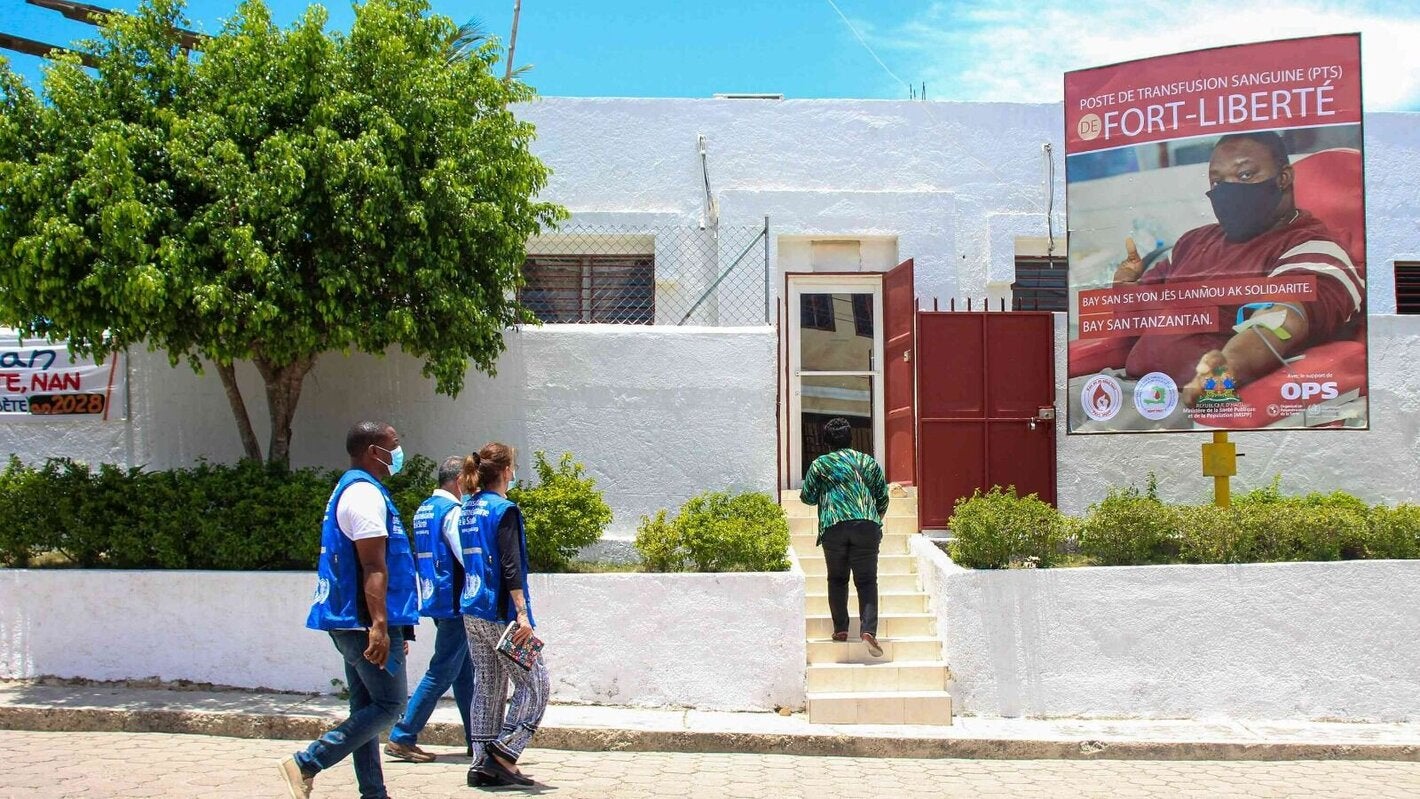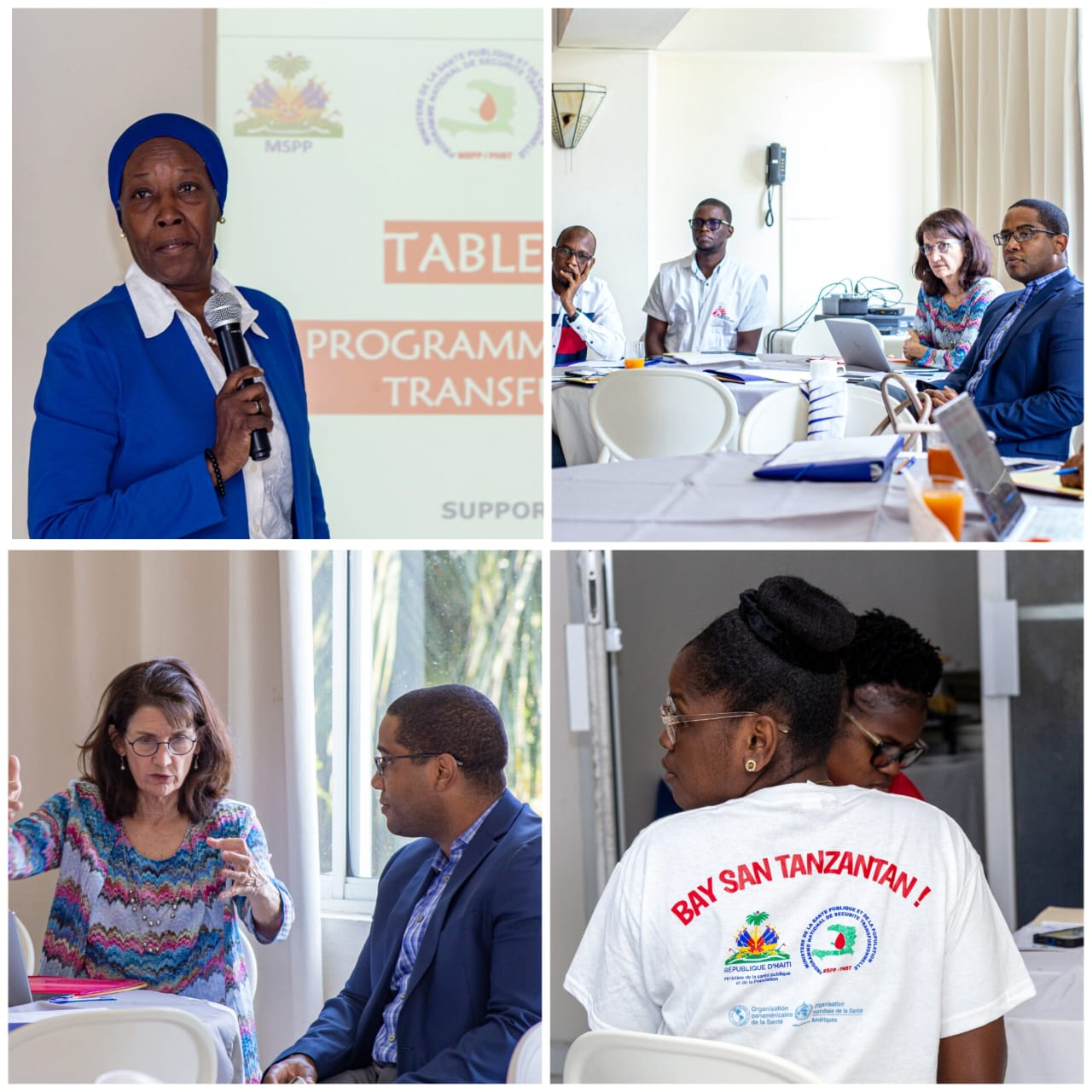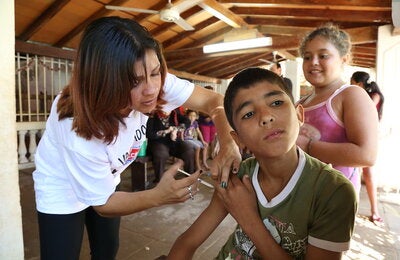
5 April 2023 (PAHO) – On March 31, 2023, a sectoral thematic table was held at the Montana Hotel in Port-au-Prince, bringing together representatives from the Ministry of Public Health and Population (MSPP), the Pan American Health Organization (PAHO) and numerous partners. The objective of this meeting was to highlight the challenges and constraints of the National Blood Safety Program (PNST) in Haiti and to make an urgent appeal to technical and financial partners to secure funds to support the activities of the National Blood Safety Program.
"Haiti has an urgent need to increase its production of safe blood, with an estimated annual demand of 60,000 to 80,000 blood bags, compared to the current production of about 20,000 bags," explained the current director of the PNST, Dr. Ernst Noel.
The availability and safety of blood products is a cross-cutting issue in the various health care activities and has a direct impact on the health of Haitians, particularly in the area of maternal mortality, trauma, surgery and diseases such as malaria or other causes of anemia.
"One of the goals of PAHO/WHO in all countries is to improve the coverage, quality, safety, management, appropriate use and timely access to blood and blood products," explained Dr. Maureen Birmingham, PAHO Representative in Haiti.
The meeting allowed PNST executives to highlight several major challenges facing the program, including insufficient funding for the operation of its blood transfusion stations, a shortage of human resources, repeated stock-outs of consumables and inputs, non-operational peripheral blood depots, as well as transportation difficulties.
The thematic table thus emphasized the need to decentralize activities, particularly testing, to guarantee rapid access to blood and to have a functional hemovigilance system. The strengthening of existing blood transfusion structures as well as the establishment of sustainable financing and the recruitment of qualified human resources were also identified as key elements.
Participants called for increased support from national and international partners, which would have a direct and significant impact on saving lives, preventing infections and improving health in Haiti. They also commended the efforts of the MSPP and PNST for their leadership and unwavering commitment to this critical program for the health of Haitians.




